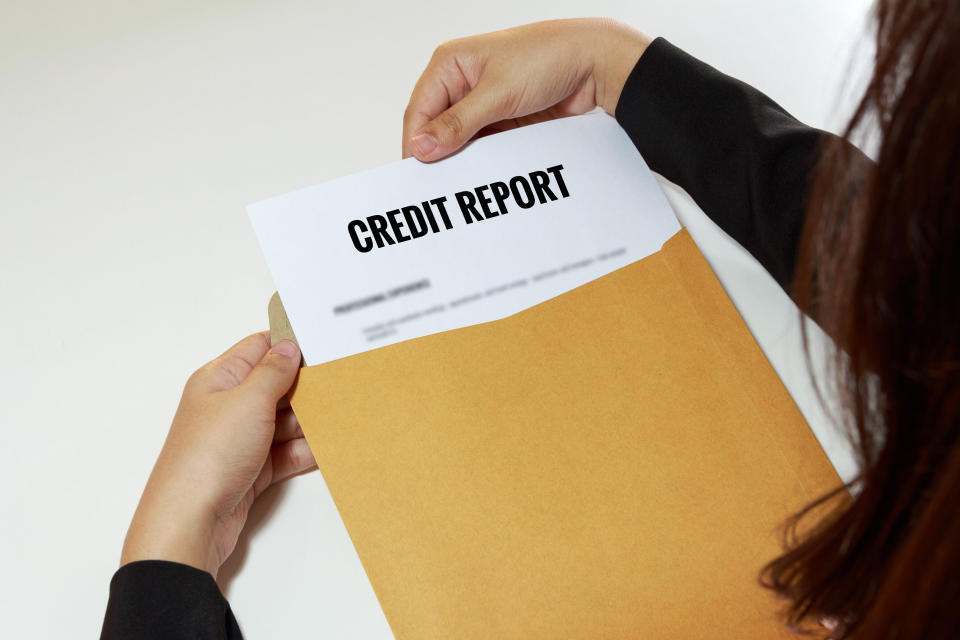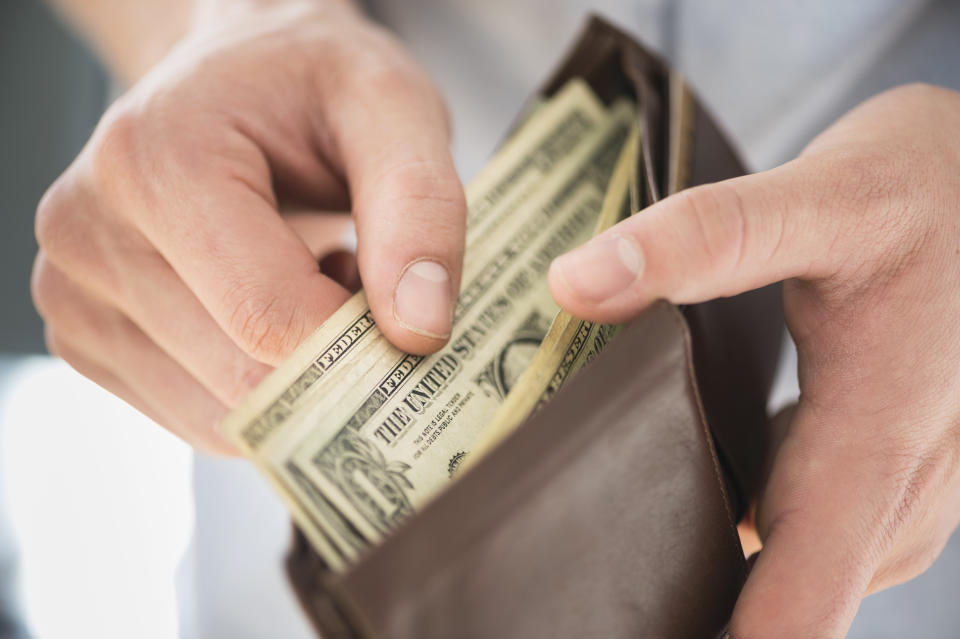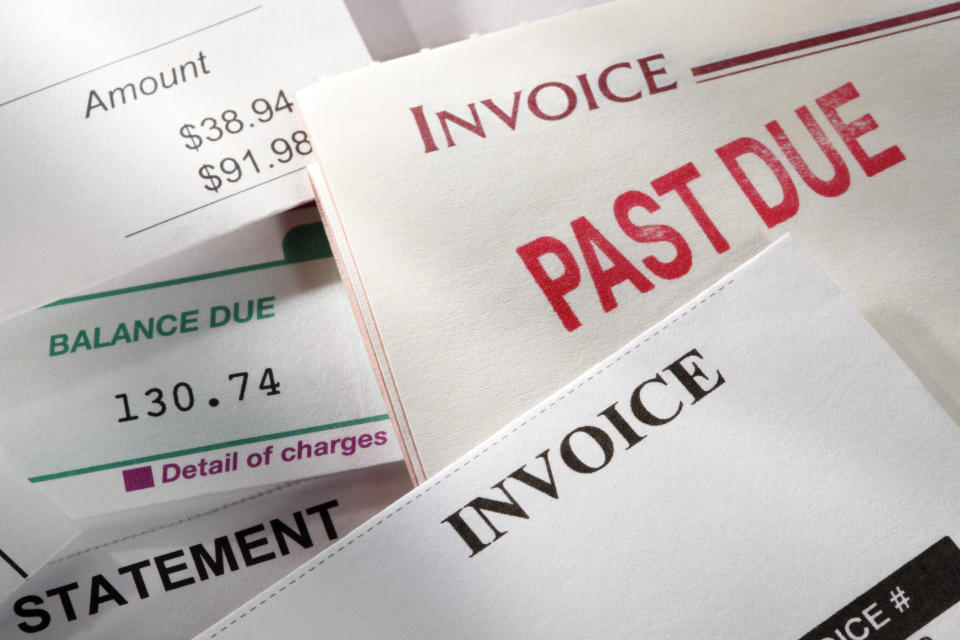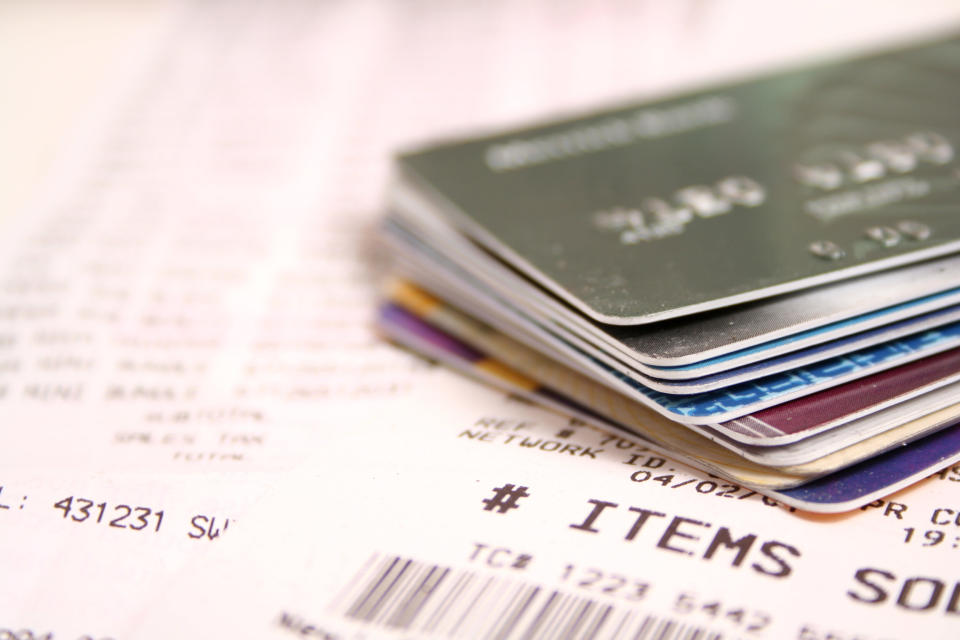This Is What Happens To Your Debt When You Die
If you own valuable assets when you die, that can be a bright spot during an otherwise incredibly difficult time for your loved ones who stand to inherit. But if you also have a lot of debt, it could wipe out those assets or even become the responsibility of your family to pay off.
A whopping 73% of adults had outstanding debt when they were reported as dead, according to 2016 Experian data provided to Credit.com. The average total balance was $61,554, including mortgage debt, or $12,875 in non-mortgage debt.
Here’s what you need to know about what happens to debt when you die, and how to protect yourself and loved ones from financial issues that could arise after a death in the family.
Do Loved Ones Inherit Debt Upon Death?
“There is often a fear from children they will inherit the debt of their parents, or that a spouse will inherit the student loan debt of their husband or wife,” said Philip J. Ruce, an estate planning attorney and owner of Stone Arch Law Office in Minnesota. Fortunately, he said, in many cases you won’t inherit the debt of a relative who has died. Even so, there are definitely situations in which that can happen.
When a person dies, his or her estate is responsible for settling any debts, Ruce explained. Debts that are secured by an asset, such as a mortgage or auto loan, can be handled by either selling the asset and using the proceeds to pay off the loan, or by allowing the lender to repossess or foreclose on the asset.
“If the family wishes to keep the asset, such as the family home, the family member who receives the house will almost always have to refinance to a new loan,” Ruce said.
If a person dies with unsecured debt, such as credit cards or an unsecured personal loan, funds available from the estate are used to pay it off before anyone receives an inheritance (with some exceptions, depending on the state).
“If there is not enough money in an estate to pay off these loans, then the estate is insolvent and the executor or personal representative will usually go through the probate system to determine which debts are paid” and in what order, Ruce said.
Any remaining debt for which the person who has died had sole responsibility will be discharged.
However, in the case of co-signed debt, such as an auto loan or private student loan, the co-signer is usually liable for it if the primary borrower dies. Ruce said that in some rare situations, the loan contract requires the co-signer to pay off the balance immediately upon the death of the borrower.
“This is called an automatic default provision, and it can be pretty scary,” he said.
Joint or co-borrowers are also on the hook for debt if the other borrower dies.
How Different Types Of Debt Are Handled When You Die
Though the general rules above apply in the case of a death, there are some nuances to how certain types of debt are handled. Here’s a look at what can happen if someone dies with some common types of debt.
Credit Card Debt
When a person dies with credit card debt, two scenarios can occur. If there is no estate, co-signer or joint cardholder, those debts die with the individual. Even so, credit card companies might call and demand payment, according to Leslie H. Tayne, a debt resolution attorney and author of the book “Life & Debt: A Fresh Approach to Achieving Financial Wellness.”
If there is an estate, the debt might still be discharged, but the credit card companies can file a claim against the estate, she said. Generally, they’ll wait up to two years to see a claim is worth pursuing.
If the person who died had a joint credit card, the other cardholder becomes responsible for the debt. This is the case regardless of whether they were the person who made the purchases or were paying the bill previously. However, this is not the case for authorized users, who are not responsible for the debt in any situation.
“If a loved one passes away, don’t use their credit card,” Tayne said. “Using a deceased person’s credit card is fraud. This includes if you continue to use the card as an authorized user on the account, knowing that the debt won’t be paid off by the primary cardholder. Tayne also advised that family members notify the credit card companies and credit bureaus of the death right away, including sending an official copy of the death certificate, to avoid problems.
Mortgage Debt
Unlike credit card debt, payments need to continue on a mortgage after the borrower’s death or else the lender can foreclose on the property.
If the person who died had a co-borrower on the mortgage, such as a spouse, that person then takes over sole responsibility for the payments and must continue to make them and/or refinance to avoid foreclosure.
If there was no co-borrower, but there was a co-signer, the co-signer becomes solely responsible for the mortgage payments, according to Tayne.
“If there is no co-borrower or co-signer on the home, the home will be inherited by the beneficiary named in the will,” Tayne said. If there is no beneficiary named, a family member can likely take over payments instead thanks to a Consumer Financial Protection Bureau rule that went into effect in 2014, which eased the process of naming a beneficiary who is qualified to make payments.
“Heirs are then able to refinance the loan or pay off the debt in full,” she said, noting that the executor of the will can use the estate’s assets to pay off the home and then give it to the heirs mortgage-free.
Student Loan Debt
When a borrower with unpaid federal student loans dies, that debt is discharged even if it was co-signed. “A loved one will need to submit proof of death to the student loan servicer in order to get the loan discharged,” Tayne said.
The rules differ between lenders for private student loans. Often, lenders will discharge the loan if the borrower dies, Tayne said. If there is a co-signer, however, that person might still be responsible for paying the loan upon the borrower’s death.
“Additionally, if you live in a community property state and you are married, your spouse will then be responsible for your [private] student loan debt upon your death,” Tayne said. This usually only applies to debt incurred during the marriage, though laws vary by state.
Protect Your Family From Debt After Death
Dealing with a death in the family is hard enough; you probably want to spare your family the added headache of sorting out your debts if you die. Here are a few things you can do to ensure a smooth transition:
Know the terms: Understanding the terms of your debts before you take them on is important in knowing what will happen to them when you die, Tayne said. “For example, read through the terms of a private student loan before taking it on to understand whether the burden would fall on your family if you passed away,” she said.
Keep good records: Tayne said it’s also important to ensure your loved ones know about all debts to your name, including who you owe, how much you owe and how to access your accounts. “This includes passwords and security login information so that your loved one can easily manage your affairs for you after death,” she said.
Maintain low balances: The best way to ensure your debt isn’t passed on to family is to maintain low balances when possible. So if you have debt sitting around that you can afford to pay down more quickly, consider getting rid of it sooner rather than later ― just in case. You might also want to avoid adding a co-signer or joint account holder unless absolutely necessary to prevent that liability from passing on to them.
Consider life insurance: A life insurance policy can help your family pay off your debts after you die. However, Tayne said the desire to have funds used this way needs to be communicated clearly in the policy. “This can be especially beneficial if the person you’re leaving your home to would have trouble making mortgage payments,” she said.
Consider legal help: “Consulting an estate attorney can help you understand exactly what will happen when you die, and what options you can pursue while you’re living in terms of your assets and your will to help avoid debt falling on your loved ones upon your death,” Tayne said.
Related...
How To Calculate DTI, Your Debt-To-Income Ratio ― And Why You Should
7 Scary Numbers That Show How Bad Student Loan Debt Is For Mental Health
What To Do If A Bill Is Sent To A Collection Agency
Also on HuffPost
Myth 1: You should stay away from credit ― period.

Those who avoid using credit are at risk of never developing a strong credit history, according to Eszylfie Taylor, president of Taylor Insurance and Financial Services in Pasadena, California. “This may present challenges when a consumer looks to make larger purchases like a car or home, as they have not exhibited the ability to borrow money and repay debts,” Taylor said.
But even if you don’t plan on borrowing money for a major purchase, you can still run into trouble when renting an apartment, opening a new utility account or even getting a job if you don’t have an established credit history.
You don’t have to put yourself in debt to build good credit. But you do need to have some skin in the game.“The simple truth is that consumers should look to establish multiple lines of credit and make payments consistently to build up their credit scores,” said Taylor.
Myth 2: Closing credit cards will raise your credit score.

According to Roslyn Lash, a financial counselor and the author of The 7 Fruits of Budgeting, this has to do with your credit utilization ratio. This ratio represents how much of your total available credit you’re actually using ― the lower your utilization, the better your score.
If you close a credit card, your available credit immediately drops.“If you have less credit but the same amount of debt, it could actually hurt your score,” Lash explained. In most cases, it’s better to cut up the card but keep the account open. Setting up account alerts can help you keep tabs on any activity or fraudulent charges.
Myth 3: Checking your own credit hurts your score.

Checking your own credit results in a “soft” inquiry, which doesn’t affect your score, according to Adrian Nazari, CEO and founder of free credit score site Credit Sesame. Other types of soft inquiries include when you’re pre-approved for a credit card in the mail or a prospective employer runs a credit check as part of the hiring process.
You can check your credit score as often as you want with no consequence. In fact, you should check it regularly; a sudden dip could indicate a problem or possible fraud.
Sites such as Credit Sesame and Credit Karma allow you to see your VantageScore 3.0 for free, though you should know this is usually not the score that lenders review. The most widely used score is your FICO score. And though there are services that charge a monthly fee to gain access to your FICO, you can often see it for free if you have a credit card with a major issuer such as Chase.
Myth 4: Making more money will increase your score.

It seems to make sense that the more you earn, the easier it should be for you to pay your debts, but “your income has nothing to do with your score,” Lash said. So feel free to celebrate that next raise, but know that your credit score will remain the same.
Myth 5: Credit reports and scores are the same things.
![<strong>Truth:</strong> Though it represents the same types of information, your <a href="https://www.huffpost.com/topic/credit-report">credit report</a> is not the same as your credit score.Think of a credit report as your financial report card and your credit score as the overall grade.<br /><br />“Your credit report is a record of your credit accounts … [including] your identifying information, a list of your credit accounts, any collection accounts you have, public records like bankruptcies and liens and any inquiries that have been made into your credit,” said Nazari.<br /><br />On the other hand, your credit score is a three-digit number that represents how likely you are to repay your debts based on the information contained in the report. Your score is “based on a complex algorithm that evaluates your relationship with credit over time,” explained Nazari. “Your credit score is not included on your credit report.”](https://s.yimg.com/ny/api/res/1.2/VggrQF_VOdzWL5.OO3PO.A--/YXBwaWQ9aGlnaGxhbmRlcjt3PTk2MA--/https://img.huffingtonpost.com/asset/5d0184d62500006813df9a9e.jpeg)
“Your credit report is a record of your credit accounts … [including] your identifying information, a list of your credit accounts, any collection accounts you have, public records like bankruptcies and liens and any inquiries that have been made into your credit,” said Nazari.
On the other hand, your credit score is a three-digit number that represents how likely you are to repay your debts based on the information contained in the report. Your score is “based on a complex algorithm that evaluates your relationship with credit over time,” explained Nazari. “Your credit score is not included on your credit report.”
Myth 6: Once delinquent accounts are paid off, your slate is wiped clean.

“Your credit report shows positive and negative accounts, including collection accounts, discharges, late payments and bankruptcies ― some of which can be on your report for up to 10 years,” explained Nazari.“That said, some collection agencies openly advertise that they will stop reporting a collection account once it’s paid off,” he added.
If that’s the case, keep an eye on your credit reports to make sure the delinquent account is removed. In most cases, however, you’ll have to live with the mark until it expires. Fortunately, its impact on your credit score should decrease with time, depending on the type of debt.
Myth 7: You can max out your cards as long as you pay the balance every month.

That’s because the date that credit card issuers report your balance to the credit bureaus is often not the same date as your payment due date.
“For a better credit score, keep your balance under 30 percent of your card’s total limit,” recommended Nazari. So if your card has a limit of $1,000, you should avoid carrying a balance of more than $300 at any time.
However, if you want to be able to use more of your available credit, you can pay down your balance before it gets reported to the bureaus. Usually, said Nazari, it’s the same as the statement closing date, but you should check with your card issuer to be sure.
Myth 8: You need a credit repair company to fix your bad credit.

“The good news is that one’s credit is ever changing and can be repaired if there have been some missteps in the past,” Taylor said. “In time, issues from the past will pass and credit can be restored ... no matter how bad it is today.”
Love HuffPost? Become a founding member of HuffPost Plus today.
This article originally appeared on HuffPost.

